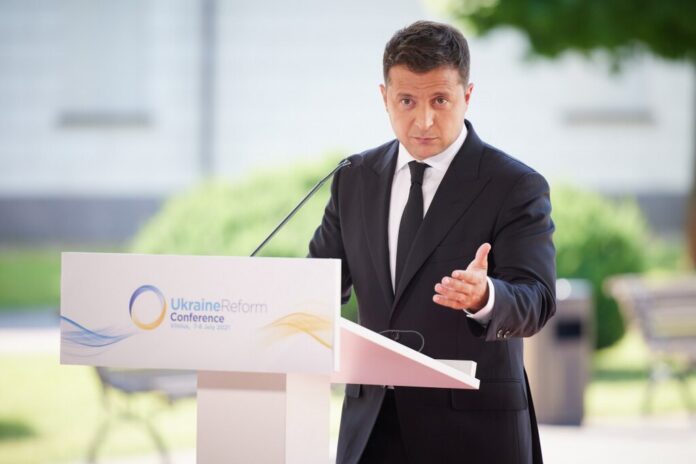Ukrainian President signs significant military agreement with EU amid ongoing conflict dynamics
Volodymyr Zelenskiy, the President of Ukraine, delivered a pointed message to EU leaders in Brussels, underscoring that Russia’s spring offensive in Kharkiv highlighted the inadequacy of current international pressures on the Kremlin. Addressing the EU summit, Zelenskiy emphasized that despite Ukrainian resilience and international support, Russia’s aggressive actions in eastern Ukraine persistently challenge existing diplomatic efforts.
“The recent Russian offensive in Kharkiv demonstrated that the pressure on Russia is not sufficient,” Zelenskiy stated, reflecting on the intensity of attacks that Ukraine successfully countered with external support. He stressed the importance of fulfilling commitments made by the EU regarding military aid and emphasized its critical role in dissuading Russia’s ambitions through direct military intervention.
Embed from Getty ImagesDuring the summit, Zelenskiy formalized a comprehensive security pact with the EU, marking a pivotal moment following Ukraine’s initiation of formal membership talks with the bloc. The agreement, spanning nine key areas of security and defence cooperation, outlines EU member states’ commitment to bolstering Ukraine’s defence capabilities amid ongoing hostilities.
The Ukrainian President acknowledged the complexities of European politics, notably mentioning the upcoming French parliamentary elections where the far-right National Rally party leads in polls. Despite political shifts, Zelenskiy expressed confidence in continued French support for Ukraine, particularly in the realm of military assistance.
Zelenskiy also highlighted the strategic importance of air defence systems and long-range strikes in safeguarding Ukrainian cities like Kharkiv from Russian assaults. He underscored the necessity of robust defence measures to counter Russian-guided bombings, emphasizing the pivotal role of modern military technologies in deterring further aggression.
Analysis:
Political: Zelenskiy’s critique of insufficient international pressure on Russia underscores growing frustration among Ukrainian leadership with the effectiveness of diplomatic and economic sanctions alone. The signing of the security pact with the EU represents a strategic alignment aimed at enhancing Ukraine’s defensive capabilities amidst ongoing military threats from Russia.
Social: Socially, Zelenskiy’s remarks resonate with Ukrainians and Europeans alike, highlighting the humanitarian impact of continued conflict and the need for sustained international solidarity. The EU’s commitment to military aid and defence cooperation reflects broader societal support for Ukrainian sovereignty and security.
Economic: Economically, the conflict exacerbates regional instability and poses challenges to European economic integration efforts. The EU’s pledge to increase defence spending signifies a shift towards prioritizing security amid heightened geopolitical tensions, potentially impacting future budgetary negotiations and economic policies within the bloc.
